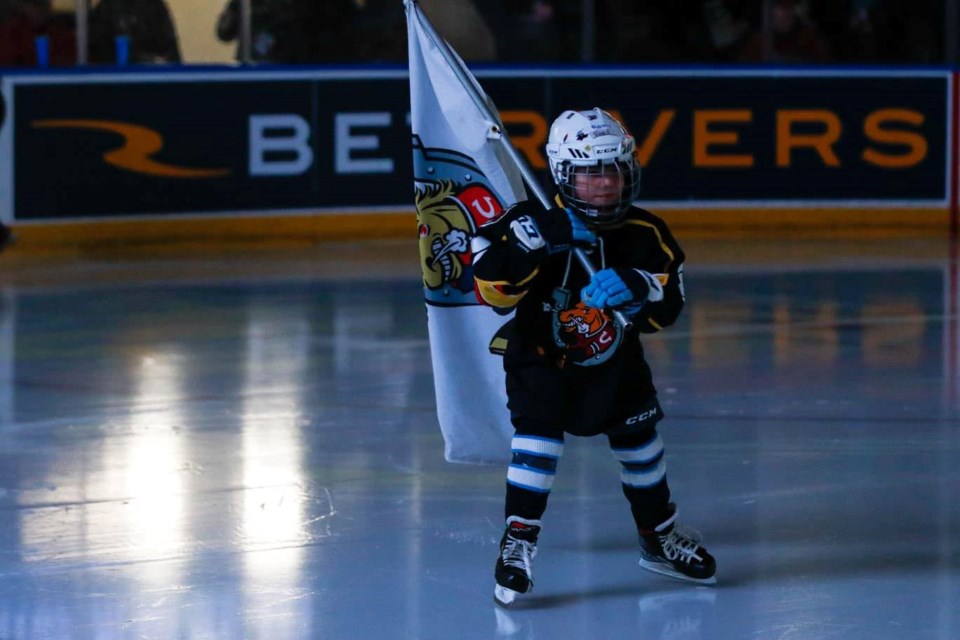Across this land, many children dream of growing up to one day play in the NHL or to represent their country in international hockey.
Throughout this land there are also many young First Nations children who have a dream of one day playing hockey. But their dream is to one day play in what has grown to be a prestigious event: the Little NHL (Little Native Hockey League) tournament.
The Little NHL tournament makes its return during the March break 2023, after being placed in limbo since 2019, due to COVID 19 restrictions. Up until that point, the tournament had been held annually since 1971 in small towns across Ontario.
Originally, the tournament attracted 17 teams. But today, the tournament is expected to host more than 200 teams of First Nation boys and girls in divisions from tyke (age 5-6) to midget (age 15-17).
Some of these teams will travel from as far away as the James Bay coast. Together with teams from across Ontario the youngsters will be vying for a chance to showcase their skills before large crowds of spectators.
As much as this prestigious tournament is about being able to hear the roar of approving crowds and feeling the ice beneath brand new skates or hearing your name announced over the loudspeaker for the first time ever, it is about the families.
The stands will be filled to standing room only — even during a tyke division game — as moms, dads, aunties, uncles, grandmothers, and grandfathers congregate to visit. Watching a bit of hockey is almost secondary as the warmth and love of one another fills the stands. It is truly a remarkable thing to experience firsthand.
I helped coach house league and rep hockey for a lot of years in Orillia. And I attended many hockey tournaments during that time. But nothing that I have ever experienced there matches the electric atmosphere and camaraderie that one feels at a Little NHL tournament.
There is also an absence of fans hanging over the glass threatening to harm players or referees. There is an absence of racial slurs and insults that is prevalent for many of these young First Nations players if they play organized hockey outside of their First Nation community.
And this is a big part of the reason this tournament was created way back in 1971. It was a way to shield First Nations youth from the racism they experienced when they entered organized hockey in towns and villages across the province. It gave them a chance to just play hockey and not have to be belittled for being a First Nations person.
I recall playing in the Little NHL in the early years and how difficult it was for organizers to even book hotel rooms for us. Many places would not host us because we were First Nations. I remember in the early days we slept on school gymnasium floors or in church basements.
But as a people, we persevered.
Soon, municipalities across the province began to see how much money all those moms, dads, aunties, uncles, grandmothers, and grandfathers, that travelled with us, would bring to a local economy. Soon, the places that once rejected us would be vying to host this tournament.
But it has outgrown those small places and it is now held in Mississauga due to its capacity to host that many people.
Now, visiting with friends and family can happen. I will attend the tournament to cheer on the Anishinaabeg Tri-Council teams from the Beausoleil First Nation, Rama and Georgina Island.
I will also attend other games where I have no affiliation with either team other than I have friends from those First Nation communities that I have not seen in a while. So, we will visit. That is the magic right there. That is what the Little NHL has come to be. A safe, happy place.
When the founders dreamed up this tournament in 1971, they based it on four pillars: education, citizenship, sportsmanship, and respect. All of that has been achieved. The by-product of camaraderie is a bonus.
Many famous First Nations men and women have showcased their talents at the Little NHL tournament including former NHL player (Detroit Red Wings, Pittsburgh Penguins) and coach of the year (Buffalo Sabres) Ted Nolan, as well as his Stanley Cup winning son, Jordan (Los Angeles Kings). Or Kathryn Corbierre, Kelly Babstock, Jonathan Cheechoo, and Chris Simon, just to name a few.
Racism still exists in organized hockey for all those young First Nations players. But it is encouraging when NHL teams and OHL teams like the Toronto Maple Leafs or the Barrie Colts host a First Nations night or recite a land acknowledgement before games. It makes for a safer place for these young boys and girls. And they can just play hockey.
Before the lights go on in those arenas in Mississauga next month, young First Nations boys and girls will be waiting, dreaming of hitting the ice and playing for their home team at the prestigious Little NHL.
Long may you run.
Jeff Monague is a former chief of the Beausoleil First Nation on Christian Island, former treaty research director with the Anishnabek (Union of Ontario Indians), and veteran of the Canadian Forces. Monague, who taught the Ojibwe language with the Simcoe County District School Board and Georgian College, is the manager of Springwater Provincial Park.



